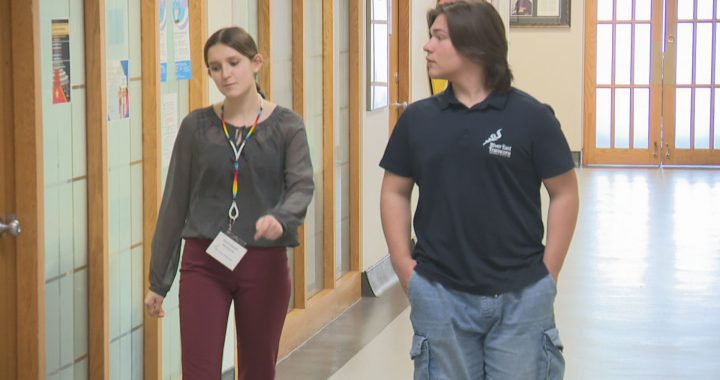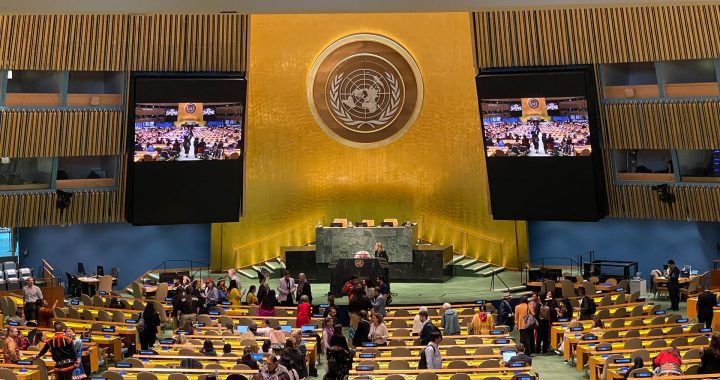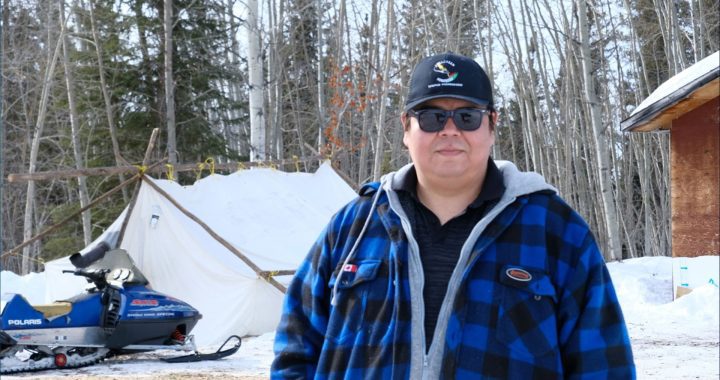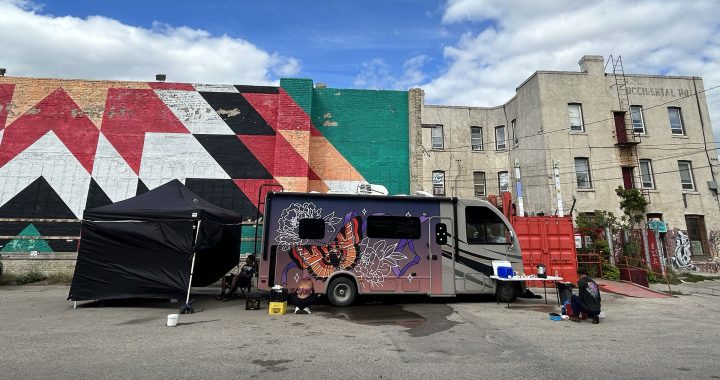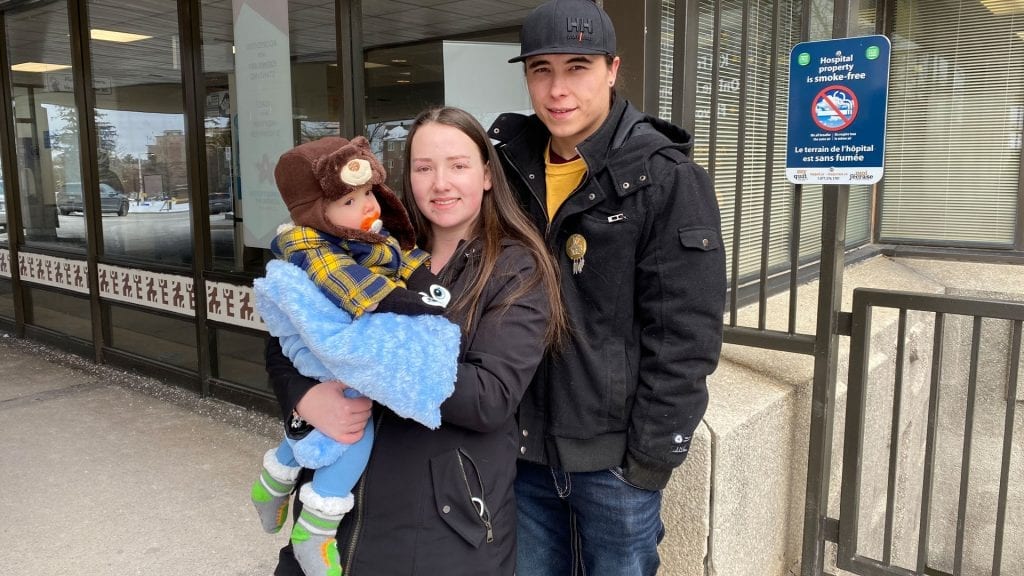
Kevin Verch, Dana Pearce and Brody Verch outside CHEO on Jan. 7. Photo: Brett Forester/APTN
An Algonquin First Nation in Ontario is doing everything it can to support a young family whose 14-month-old son is diagnosed with a rare and debilitating neuromuscular disease known as type 2 spinal muscular atrophy (SMA2).
Kevin Verch, known affectionately to his family as Lil’ Kev, reached key developmental milestones through the first months of his life. But then his parents noticed he was losing strength in his lower body.
Over the 2020 holiday break, not long after his Nov. 7 first birthday, Kevin was diagnosed with SMA2.
“It’s been very hard to watch him losing his muscles and getting weaker day by day,” says his mom Dana Pearce, through tears. “When he was like four months, he had mostly all of his milestones except for crawling and walking. And then watching him lose those has been very hard.”
SMA is a genetic illness that affects one in 10,000 kids, yet it’s said to be the leading cause of infant genetic death. It’s caused by a missing or defective gene that produces protein needed to keep motor neuron cells healthy. Motor neuron cells are critical for developing everything from breathing, eating, talking, lifting the head and walking.
The cells progressively weaken until they lose functionality and die. It results in muscle atrophy, weakness, paralysis and – if left untreated in its most severe form – death, often by the age two. Type 2 is an intermediate form.
Two approved treatments in Canada
There is a treatment available through publicly funded health care in Ontario. The drug corrects how the faulty gene produces certain proteins. After four initial doses, it’s delivered through spinal injection three times a year for life.
Kevin received his first shot of Spinraza on Jan. 7 and was resting comfortably, says the family in an update.
She and Kevin’s dad, Brody Verch, drove 150 km east from their home in Golden Lake so Kevin could start treatment at the Children’s Hospital of Eastern Ontario (CHEO) in Ottawa.
Pearce is overcome with emotion trying to describe the enormity of the whirlwind last few weeks.
“They’ve been hard (times),” she says, “with not ever hearing about this disease before and then finding out that our little guy has it. But we’ve just been doing everything we can to try and get him what he needs.”
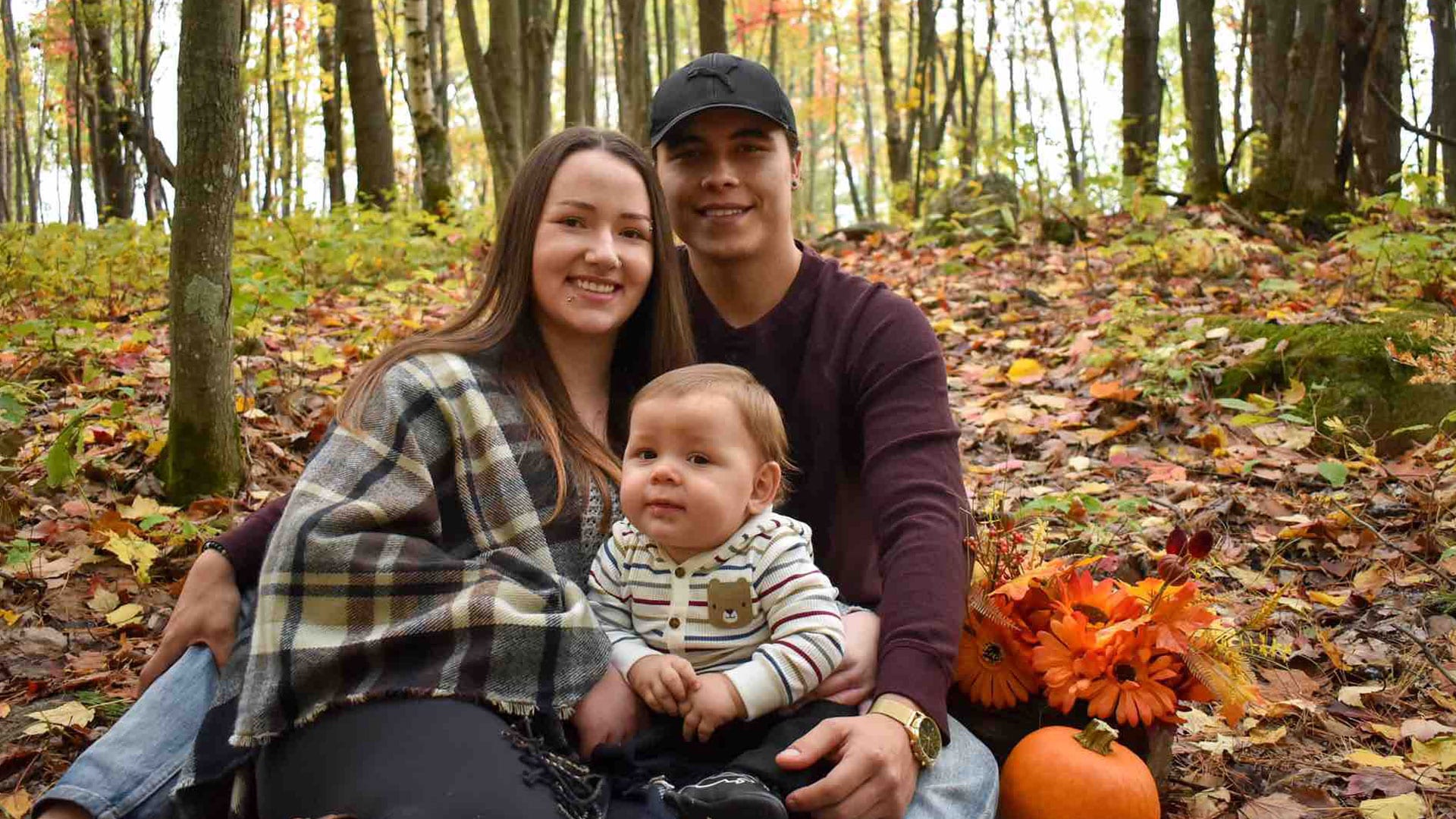
Spinraza was the first and only SMA treatment approved for use in Canada – until last month. That’s when Health Canada approved Zolgensma, which delivers a new working copy of the faulty or missing gene into the cells through a one-time intravenous (IV) drip.
Zolgensma halts disease progression and restores production of the needed protein. It can change lives, doctors say.
But there’s a catch.
Zolgensma is reportedly the most expensive drug ever. It carries a steep price tag of $2.8 million.
It isn’t available yet through public health funding in Ontario, and few families can afford the cost.
And when those motor neuron cells die, they can’t be restored. So the drug works best when administered early. Kevin’s family hopes to secure a Zolgensma dose by his second birthday.
APTN News asked Ontario’s Health Ministry when and if the drug would become available through the public health-care system but didn’t receive a response by deadline.
The family, with the help of grandma Jessica Verch, quickly put together a GoFundMe page to try and raise the cash. It banked over $70,000 in its first week.
“It’s giving us hope,” says Pearce, explaining how the support helps them stay positive.
“It’s honestly an amazing feeling, the support in the community,” adds Brody. “It was just insane with the amount of family members, not even family, just like everybody donating, auctions, there’s going to be a bottle drive.”
Grandma and mom also started a TikTok campaign to generate support. The videos show young life-loving Lil’ Kev smiling, laughing and playing.
When dad asks him to smile for the camera outside the hospital, he does.
“That was lucky,” says Brody.
Pikwakanagan leadership helping out
Kevin and his family are members of the Algonquins of Pikwakanagan First Nation.
Chief and council say they acted promptly to help when they found out about his disease. They formed a “Lil’ Kev SMA2 team” to come up with a plan.
Kerry Andrews, a band employee and one of two people co-leading the team, says they plan on fundraising, lobbying and advocating on Kevin’s behalf to other levels of government.
That includes applying for assistance under Jordan’s Principle, a child-first principle that ensures First Nations kids have access to public services when and where they need them without delay, denial or jurisdictional disagreement between the provinces and Ottawa.
Andrews says the First Nation’s executive director and a representative from the federal Jordan’s Principle program recently completed an application during a meeting with Kevin’s grandma.
“They understand the dire urgency and sensitive timing around Lil’ Kev receiving the Zolgensma gene replacement therapy and that a response to Kevin’s application will be a priority,” Andrews says in an email.
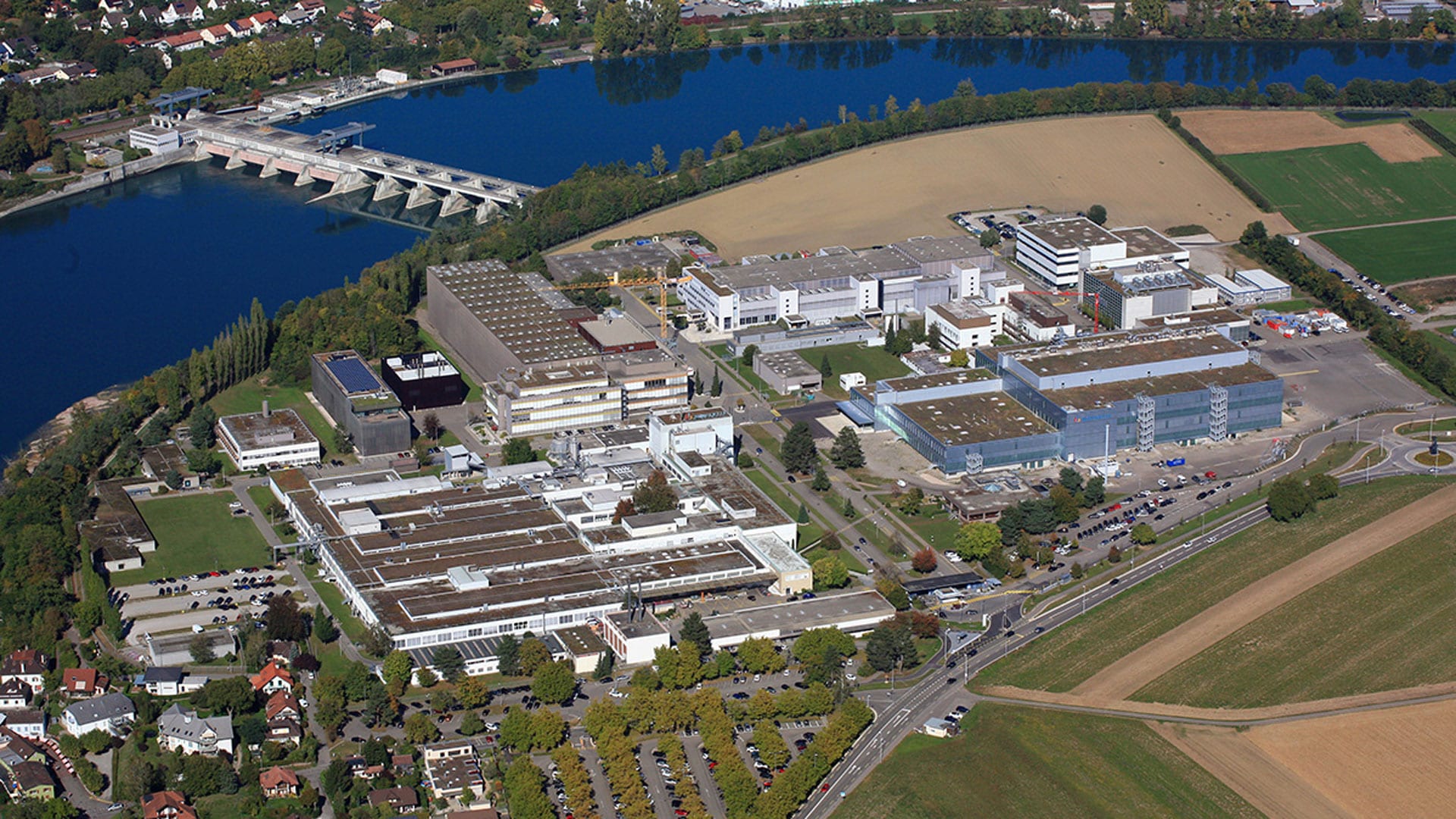
Novartis, the Swiss pharmaceutical giant that makes the drug, granted the treatment to at least two Canadian newborns in 2020.
A baby in B.C. was randomly selected through a worldwide lottery in August. Ontario’s Aidan Deschamps, the first infant diagnosed with SMA through newborn screening, received Zolgensma through the company’s managed-access program.
The program lets people with serious or life-threatening illnesses receive drugs that aren’t yet approved if no satisfactory alternative therapy exists.
The door may be closed to Kevin on this option after Health Canada greenlit Zolgensma on Dec. 16. And the odds of winning the lottery – arguably the fairest way to gift the widely sought dose – are slim.
So for now, mom and dad are holding fast to hope.
“To watch our son going through this, it’s heartbreaking,” says Pearce. “We just hope for the best, and we hope that everybody supports us as much as they can and realize what we’re going through and how hard it is.”
Adds Brody: “We just really appreciate everybody for helping out as much as they already have and being really supportive, even just on Facebook and messaging and sharing. It feels really good.”





